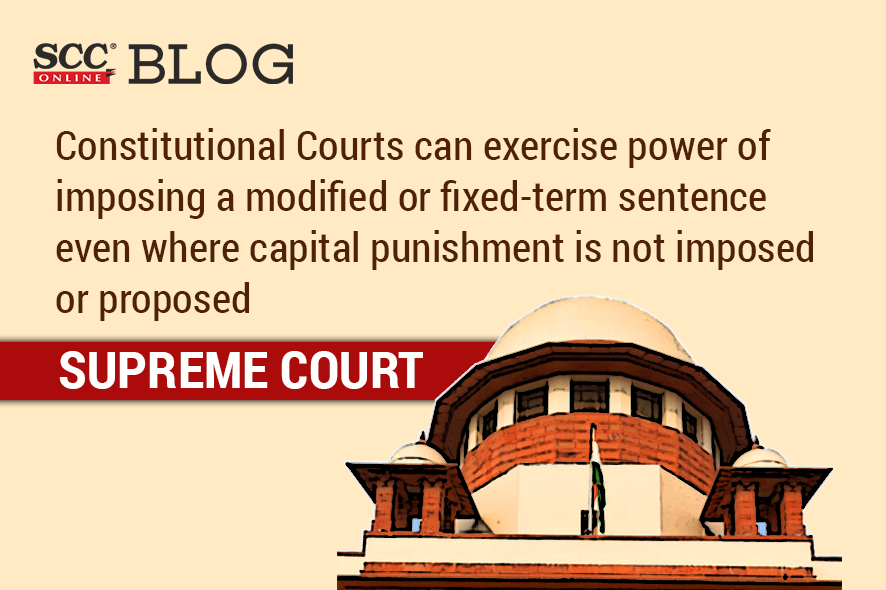Supreme Court: In an appeal, the division bench of Abhay S. Oka* and Rajesh Bindal, JJ., allowed an appeal against the order of life-time sentence to the accused by the Trial Court for offence punishable under Section 302 of Penal Code, 1860 (IPC) and modified the sentence to a fixed-term period of 30 years. The appeal before the Court was limited to the modification of the awarded sentence by the Trial Court for the offence punishable under Section 302, IPC.
In the matter at hand, the accused, a driver of the company wherein the deceased woman was working, had raped and murdered her and was convicted for offences punishable under Sections 366, 376 and 302, IPC.
The Court said that while passing an order of conviction for an offence which is punishable with death penalty, the Trial Court may conclude that the case is not a ‘rarest of rare’ case and depending upon the punishment prescribed for the offence committed, it may impose other punishment specifically provided in Section 53, IPC. However, if the Constitutional Court finds that though a case is not falling in the category of ‘rarest of the rare’ case, considering the gravity and nature of the offence and all other relevant factors, it can always impose a fixed-term sentence.
The Court reiterated what the Constitution Bench said in Union of India v. V. Sriharan, (2016) 7 SCC 1, the power derived from the Section 53 read with Section 45, IPC for any modified punishment for specified offences can only be exercised by the High Court the Supreme Court in case of appeal and not by any other Court in the country.
It was observed that,
“we have no manner of doubt that even in a case where capital punishment is not imposed or is not proposed, the Constitutional Courts can always exercise the power of imposing a modified or fixed-term sentence by directing that a life sentence, as contemplated in Section 53, IPC, shall be of a fixed period of more than fourteen, twenty and thirty years and so on”.
The Court opined the case at hand to be such where a fixed-term sentence for a period of thirty years must be imposed, considering the facts of the case along with the factor that the Trial Court found the case to be not falling in the category of ‘rarest of the rare’ cases. This was one such case, wherein a Constitutional Court must exercise the power of imposing a special category of modified punishment.
Thus, the Court modified the order of the sentence of the Trial Court for the offence punishable under Section 302, IPC and directed the accused to undergo imprisonment for a period of 30 years.
[Shiva Kumar v. State of Karnataka, 2023 SCC OnLine SC 345, decided on 28-03-2023]
*Judgment authored by: Justice Abhay S. Oka







